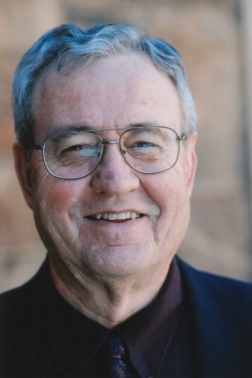
As a pastor it’s easy to believe that everyone cares about spiritual formation as much as I do. In a community group years ago, I remember rambling on about something our church was beginning and something I, as a pastor at the church, really wanted everyone to understand. I was very excited about it and shared with this group how important all of this was going to be for them. Afterward, as my wife and I recapped the night, she gently said to me, “Chris, you need to remember that you care more about the church than anyone else.”
She was right. I care about the word “missional,” and how often a person interacts with his coworkers about faith. I care about church attendance, reactions to sermon series, and how a person defines “the gospel.” But most people don’t. They care about their kids, their families, their jobs, and their bills. They care about life. And this realization is how Dallas Willard saved my ministry.
Willard didn’t write many books intended for pastors, but most pastors have read his books. He wrote about life–the vast area in which God is working–of which “church ministry” is just a small subset. For example, after a long chapter describing the curriculum for Christlikeness in The Divine Conspiracy, Willard took just over one page for, “Some Practical Points About Implementation—Especially for Pastors” (pg. 371). The final chapter of Renovation of the Heart is, “Spiritual Formation in the Local Congregation,” and is just 20 pages of his 257 page book. Willard’s words were not just for pastors—and not even just for Christians—they were for all of life; our mundane and ever-important life.
He wrote:
“Life, our actual existence, is not included in what is now presented as the heart of the Christian message, or it is included on marginally. This is where we find ourselves today…Transformation of life and character is no part of the [current] redemptive message” (The Divine Conspiracy, page 41).
Before reading Willard, much of my ministry was centered on convincing people to agree with our church and my ideas. I wanted to hear them say the things I said and nod their head when the time was right. But after reading Renovation of the Heart and other articles by Willard, I came to understand that I only knew what people should not do. I knew what Jesus saved them from, but I had no vision for what Jesus had saved us all to.
Willard helped me see that the questions my people were asking had more to do with their lives than my church: How does life with God change my relationship with my family? How does discipleship under Jesus reorient my future plans? Does my faith have anything to do with the people I dislike? How do I say “no” to the guys at work? And why should I? These questions have nothing to do with church teaching campaigns or theological minutia—they have higher stakes; they matter to people who live in the real world, not a church subculture. They are, as Willard would put it, issues of discipleship or non-discipleship.
While other teachers address these practical concerns, Willard went deeper to the place Jesus went in his Sermon on the Mount–the very roots of the human heart. Rather than simply asking What should we do?, Willard asked, Who should we be? He never wrote a book about vocation, but he wrote about hearing the voice of God. He never wrote about calling, but he wrote about discipleship. He never wrote about fatherhood or what it means to live your faith in college, but he wrote about character. He recognized the deeper issues behind all of life’s roles and challenges. Consider his insight about divorce:
“It is not an accident that Jesus deals with divorce after having dealt with anger, contempt, and obsessive desire. Just ask yourself how many divorces would occur…if anger, contempt, and obsessive fantasized desire were eliminated. The answer is, of course, hardly any at all” (The Divine Conspiracy, page 172).
In his teaching Willard often quoted Proverbs 4:23, “Watch over your heart with all diligence, for from it flows the springs of life.” He recognized that God will only change us through non-physical means from the inside out. As Willard said, “The part of us that drives and organizes our life is not physical” (Renovation of the Heart, page 13).
I can read all of the books and blog posts about what makes a good pastor, but the truth is I need not worry about what makes a good pastor if I am a good man. A good man will make a great pastor, not the other way around (Matthew 7:15-20). Because great pastors (or great plumbers, teachers, and doctors for that matter) are not what the world is in need of. We are in need of great people–changed persons who are filled with generosity, courage, and humility.
This is a fraction of what Dallas Willard has taught me in my life. I haven’t even touched his work on the disciplines or on discipleship, all of which were not just helpful, but truly transformed how I viewed the way God works in individuals and communities. He is to thank for these deep realities of existence and I am forever grateful for his life.
Chris Nye is a pastor and writer living in Portland, OR, with his wife, Ali. Connect on Twitter: @chrisnyeChris Nye is a pastor and writer living in Portland, OR, with his wife, Ali. Connect on Twitter: @chrisnye









